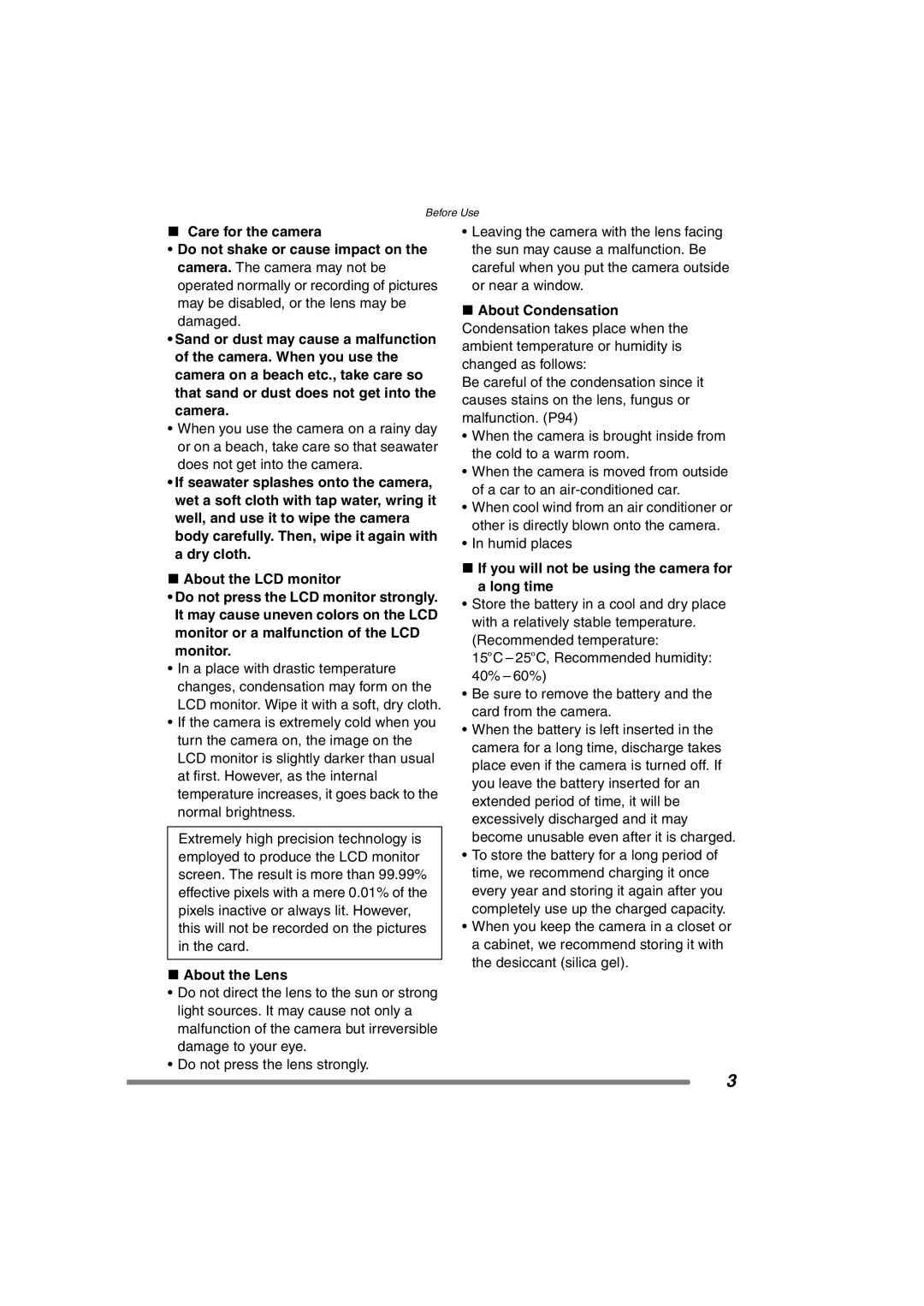
Before Use
∫Care for the camera
•Do not shake or cause impact on the camera. The camera may not be operated normally or recording of pictures may be disabled, or the lens may be damaged.
•Sand or dust may cause a malfunction of the camera. When you use the camera on a beach etc., take care so that sand or dust does not get into the camera.
•When you use the camera on a rainy day or on a beach, take care so that seawater does not get into the camera.
•If seawater splashes onto the camera, wet a soft cloth with tap water, wring it well, and use it to wipe the camera body carefully. Then, wipe it again with a dry cloth.
∫About the LCD monitor
•Do not press the LCD monitor strongly. It may cause uneven colors on the LCD monitor or a malfunction of the LCD monitor.
•In a place with drastic temperature changes, condensation may form on the LCD monitor. Wipe it with a soft, dry cloth.
•If the camera is extremely cold when you turn the camera on, the image on the LCD monitor is slightly darker than usual at first. However, as the internal temperature increases, it goes back to the normal brightness.
Extremely high precision technology is employed to produce the LCD monitor screen. The result is more than 99.99% effective pixels with a mere 0.01% of the pixels inactive or always lit. However, this will not be recorded on the pictures in the card.
∫About the Lens
•Do not direct the lens to the sun or strong light sources. It may cause not only a malfunction of the camera but irreversible damage to your eye.
•Do not press the lens strongly.
•Leaving the camera with the lens facing the sun may cause a malfunction. Be careful when you put the camera outside or near a window.
∫About Condensation Condensation takes place when the ambient temperature or humidity is changed as follows:
Be careful of the condensation since it causes stains on the lens, fungus or malfunction. (P94)
• When the camera is brought inside from the cold to a warm room.
• When the camera is moved from outside of a car to an
• When cool wind from an air conditioner or other is directly blown onto the camera.
• In humid places
∫If you will not be using the camera for
a long time
•Store the battery in a cool and dry place with a relatively stable temperature. (Recommended temperature:
15oC – 25oC, Recommended humidity:
40% – 60%)
•Be sure to remove the battery and the card from the camera.
•When the battery is left inserted in the camera for a long time, discharge takes place even if the camera is turned off. If you leave the battery inserted for an extended period of time, it will be excessively discharged and it may become unusable even after it is charged.
•To store the battery for a long period of time, we recommend charging it once every year and storing it again after you completely use up the charged capacity.
•When you keep the camera in a closet or a cabinet, we recommend storing it with the desiccant (silica gel).
3
